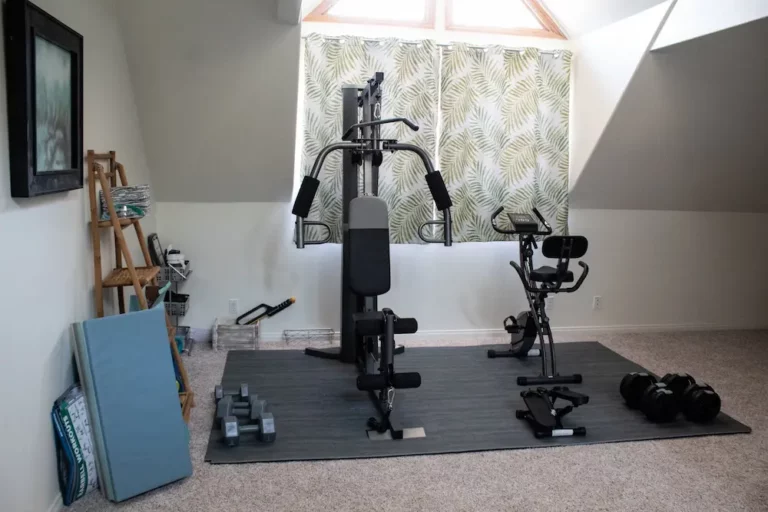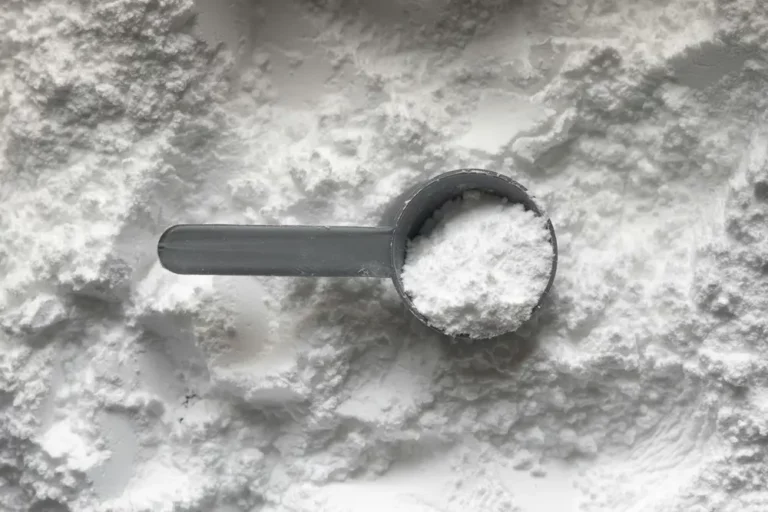Creatine Pills vs Powder: Myths Busted & Best Choices for Fitness Goals
Deciding between creatine pills and powder can feel like standing at a crossroads, especially when you’re just dipping your toes into the world of sports supplements. It’s like choosing between two paths that promise to lead you to the same destination: improved performance and muscle growth. But as we all know, the journey matters just as much as the destination.
So, I’ve done the legwork to help you figure out which form of creatine might be your perfect gym buddy. Whether you’re all about convenience or you’re a stickler for customization, understanding the pros and cons of creatine pills vs powder is key. Let’s dive in and find out which one could be your ticket to hitting those fitness goals.
What Is Creatine Supplementation?
When I first heard about creatine supplementation, I was intrigued but also a bit confused. Simply put, it’s a way to enhance your muscle mass, strength, and overall athletic performance by adding a naturally occurring amino acid into your diet. This same amino acid plays a crucial role in helping your muscles produce energy, especially during high-intensity workouts. For anyone looking to improve their fitness outcomes, understanding creatine and its benefits can be a game-changer.
The Different Forms of Creatine Available
As I dove deeper into the world of creatine supplementation, I discovered there’s a variety of forms available on the market. While creatine monohydrate is the most prevalent and widely studied form, recognized for its efficiency in enhancing muscle mass and performance, other forms like creatine ethyl ester, creatine hydrochloride (HCL), and buffered creatine claim to offer similar benefits with different absorption rates and effectiveness. It’s crucial to note that despite the variety, creatine monohydrate remains the top choice for many, backed by research and approval from the Food and Drug Administration (FDA).
I found it particularly interesting how these supplements can come in different shapes and sizes, too – from powders to pills, liquid, and even gummies. Each form has its pros and cons concerning convenience, absorption, dosage accuracy, and personal preference. For instance, while powders are highly customizable in terms of dosage, they require a bit of preparation, whereas pills offer convenience but may contain fillers or binders and generally have a fixed dose. The choice between these depends largely on one’s lifestyle, goals, and, of course, taste preferences.
What Are Creatine Pills?
Creatine pills are essentially creatine monohydrate compressed into a convenient pill form. When I first considered supplementing with creatine, the idea of taking it in pill form seemed appealing due to its convenience and ease of use. Unlike powder, which requires measuring and mixing, creatine pills offer a straightforward alternative. You simply take a specific number of pills with water according to the recommended dosage on the product label.
Pros and Cons of Creatine Pills
In my journey to find the optimal supplement form, I’ve come to learn that each has its advantages and drawbacks. Let’s take a closer look at what creatine pills have to offer and what might make them less favorable for some users.
Pros:
- Convenience: For me, the biggest draw of creatine pills is their convenience. There’s no need for a shaker or water to mix the powder. You can easily toss them into your gym bag and take them on the go.
- Portability: Creatine pills are ideal for travel. They don’t take up much space and you don’t have to worry about them spilling or leaking.
- Dosage Accuracy: Each pill has a precise dosage, eliminating the guesswork involved in measuring out powder.
Cons:
- Cost: In my experience, creatine pills can be more expensive than their powder counterpart. The manufacturing process of creating the pills adds to the cost.
- Swallowing Pills: For some, swallowing pills is a challenge. Depending on the size of the pills, this could be a significant drawback.
- Frequency and Dosage: Often, achieving the desired dosage requires taking several pills at a time, multiple times a day. This can be inconvenient for some people and might lead to lower compliance with supplementation routines.
In essence, creatine pills pack the power of creatine monohydrate into a compact, easy-to-use form. They’re a fantastic option for those of us who value convenience and portability in our fitness supplements. However, it’s important to weigh these benefits against the potential downsides like cost and the need to take multiple pills to meet the desired dosage.
What Is Creatine Powder?
Creatine powder is essentially creatine monohydrate processed into a fine powder form. This is the most researched and commonly used form of creatine supplement available on the market today. When mixed with liquid, it’s consumed to increase the body’s ability to produce energy rapidly, which can lead to enhanced performance in strength and endurance activities. I’ve found that it’s not just about giving that extra boost in your workout session; it’s also about replenishing your muscle’s creatine stores efficiently.
Pros and Cons of Creatine Powder
Like any supplement, creatine powder has its share of advantages and disadvantages. I’ve put together what I’ve gathered to give you a clearer picture.
Pros:
- Cost-Effective: One major advantage is its cost. On a per-serving basis, creatine powder tends to be less expensive than its pill counterpart.
- Versatile: Another pro is its versatility. You can easily mix it with your favorite beverage, allowing for a customized intake method.
- Rapid Absorption: Creatine powder is known for its rapid absorption rate, meaning it gets to work quickly once ingested.
- Dosage Precision: While you can customize your dose, it’s also easier to get the dosage wrong if you’re not careful with your measurements.
Cons:
- Mixing Required: A downside is the extra step of having to mix it with water or another liquid. This can be inconvenient for some, especially those who are always on the go.
- Taste and Texture: Some individuals might find the taste or texture of creatine powder off-putting when mixed with just water.
In sum, creatine powder offers a flexible and cost-effective way to supplement your workout regime. It’s perfect for those who don’t mind a bit of mixing and measuring to get their ideal dose. Moving forward, it’s essential to weigh these pros and cons against personal preferences and goals to decide if creatine powder is the right choice.
Comparing Creatine Pills and Powder
When it’s time to boost my workout regime, creatine is my go-to supplement. However, choosing between the pill and powder form can be a bit puzzling. So, I decided to dive deep and compare them based on convenience, absorption, and cost.
Convenience and Usability
Let’s talk about the convenience of creatine pills vs. powder. In my experience, creatine pills offer unbeatable convenience. There’s no measuring or mixing involved; I just pop the recommended dose with water, and I’m good to go. They’re also incredibly portable. If I’m heading out for the day or traveling, it’s easy to carry a day’s supply in a small container.
On the other hand, creatine powder requires a bit more effort. I find that I need to measure out the correct dose each time, which isn’t always convenient when I’m in a rush. Plus, mixing it into a drink without clumps can be a bit of an art form. However, it does offer versatility. I can mix it into my protein shake, juice, or even a smoothie, which can be a nice change.
Absorption and Effectiveness
The effectiveness of creatine, whether in pills or powder, is a hot topic. From what I’ve read and my own results, the absorption rate really matters. Powdered creatine, when mixed with a liquid, begins to absorb into my system faster than a pill. This means that it’s ready to work by the time I hit the gym. I’ve also read that taking creatine with a carb-rich fruit or juice could potentially boost absorption even further.
Creatine pills, while convenient, may take longer to break down and absorb. This isn’t necessarily a deal-breaker, but it’s something I consider when I’m aiming for optimal timing around my workouts.
Cost Comparison
When it comes to my supplement budget, every dollar counts. So, I took a look at the cost difference between creatine pills and powder. Generally speaking, creatine powder tends to offer more bang for my buck. With powder, I’m paying for pure product, whereas with pills, part of the cost goes towards the convenience of encapsulation.
To give you an idea, here’s a quick cost breakdown based on my last supplement run:
| Creatine Form | Price per serving |
|---|---|
| Powder | $0.12 |
| Pills | $0.30 |
Clearly, the powder comes out on top in terms of cost-effectiveness. However, it’s also important to consider how much value I place on convenience versus the price difference.
How to Choose Between Creatine Pills and Powder
When faced with the decision between creatine pills and powder, it’s easy to feel a bit overwhelmed. I’ve been there! However, understanding what factors to consider can make this decision much simpler.
Factors to Consider When Choosing
The first factor I always consider is convenience. Creatine pills are incredibly convenient, especially for those of us who are always on the go. They don’t require any prep time; you simply swallow with water. On the flip side, creatine powder, while a tad more cumbersome, offers flexibility in dosing and the way you consume it.
Next up is the absorption rate. It’s notable that creatine powder is generally absorbed more quickly by the body, especially when mixed into a liquid. This can be particularly important for those looking to maximize their workout performance in real time.
Cost-effectiveness is another crucial point. Generally speaking, creatine powder tends to offer more servings per dollar compared to pills. For anyone keeping an eye on their supplement budget, this could be a decisive factor.
Recommendations Based on Lifestyle and Goals
When considering my lifestyle and goals, here’s how I’d break it down. If I were someone with a particularly busy lifestyle, perhaps traveling frequently or always running from one commitment to the next, I’d lean towards creatine pills. Their portability and no-mess, no-fuss nature just make life easier.
For someone focused intensely on optimizing performance and getting the most bang for their buck, I’d recommend creatine powder. The slightly faster absorption rate and cost-effectiveness can play a significant role in long-term fitness goals.
Ultimately, both forms of creatine have their place, and your choice might evolve as your fitness journey progresses. Whether I’m heading for a quick gym session before work or planning a detailed workout schedule on a tight budget, both forms of creatine can fit into different phases of my life.
Maximizing the Benefits of Creatine Supplementation
Once you’ve decided between creatine pills and powder, the next step is ensuring you’re maximizing the benefits of your chosen form of supplementation. While both options can be effective, how you use them and what you combine them with can significantly affect your results. Let’s break it down a bit further.
Best Practices for Creatine Usage
I’ve found that timing and consistency are everything when it comes to creatine usage. For optimal absorption, taking creatine either pre or post-workout has shown considerable benefits. However, if I’m not working out on a particular day, I’ll still take my creatine to maintain consistency. This helps keep my muscles saturated with creatine, ensuring I’m always ready to perform at my best.
Another critical aspect I always keep in mind is hydration. Creatine pulls water into your muscle cells, so staying well-hydrated is essential to prevent dehydration. I aim for at least 8 glasses of water a day, but this increases on workout days.
Combining Creatine with Diet and Exercise
To really maximize the benefits of creatine, I’ve found that combining it with the right diet and exercise program is essential. Creatine isn’t a magic pill (or powder) that works in a vacuum; it requires a supportive environment to truly shine. For me, this means focusing on protein-rich foods to support muscle recovery and growth and complex carbs to provide the energy needed for intense workout sessions.
As for exercise, it’s not just about lifting weights. Creatine enhances my ability to perform high-intensity workouts by replenishing ATP stores quickly. Therefore, I incorporate a mix of resistance training and high-intensity interval training (HIIT) into my routine. This combination has not only helped increase my muscle mass but also improved my overall fitness levels significantly.
Common Myths and Misconceptions
When we’re talking about creatine, whether it’s in pill or powder form, there’s a wagonload of myths and misconceptions that I’ve come across. It’s time we clear the air and set the facts straight.
Debunking Creatine Myths
First things first, one of the most common myths I’ve bumped into is that creatine causes dehydration and cramps. This couldn’t be further from the truth. In fact, creatine holds water within the muscle cells, which might actually reduce the risk of dehydration. I always make it a point to stay well-hydrated throughout the day, which should be a practice whether you’re supplementing with creatine or not.
Another myth that deserves a good debunking is that all creatine forms are the same. While the end goal of creatine supplementation is to boost phosphocreatine stores in our muscles, the efficiency and rate at which different forms of creatine (including powder and pills) achieve this can vary. It’s all about finding which form works best for your lifestyle and body.
Finally, let’s tackle the big one: that creatine is a sort of “steroids” or just for bodybuilders. Nah, creatine is naturally found in our bodies and in foods like meats and fish. It’s been rigorously studied and shown to be safe for long-term use. So, whether you’re a sprinter, a bodybuilder, or someone simply looking to improve their overall fitness, creatine can be a beneficial addition to your supplement stack.
Scientific Evidence Supporting Creatine Use
Speaking of studies, let’s dive into some of the science backing creatine. It’s probably one of the most researched supplements out there. Research highlights include:
- Increased muscle mass: Creatine has been proven to significantly increase lean muscle when combined with resistance training.
- Enhanced recovery: Studies suggest creatine can speed up muscle recovery and reduce soreness.
Below is a quick look at the data supporting these benefits:
| Benefit | Study Results |
|---|---|
| Muscle Mass Increase | One large-scale review found creatine significantly increased lean muscle in combination with resistance training. |
| Enhanced Recovery | Numerous studies indicate creatine accelerates healing, helping reduce muscle soreness. |
It’s clear from scientific research that creatine isn’t just about pumping up muscles; it’s also about enhancing recovery so you can get back to your workouts with less downtime. Whether you choose pills or powder, incorporating creatine into your regimen can offer tangible benefits that are backed by solid evidence. Remember, the key is consistent, disciplined use alongside proper diet and exercise.
Conclusion
Deciding between creatine pills and powder boils down to personal preference and lifestyle. I’ve tried to shed light on common misconceptions and highlight the universal benefits of creatine, regardless of its form. Remember, it’s not just for bodybuilders. Whether you’re aiming to increase your muscle mass, enhance recovery, or achieve other fitness goals, integrating creatine into your regimen can be a game-changer. Just make sure you’re staying hydrated and combining it with a proper diet and exercise. Here’s to making informed choices and reaching our fitness milestones!
FAQ – Frequently Asked Questions
What should you not mix creatine with?
It is not recommended to mix creatine with NSAIDs, caffeine, diuretics, cimetidine, or any drugs that affect the kidneys, as it may increase the risk of kidney damage. Mixing with probenecid is also not advisable.
Can I mix creatine with protein?
Yes, you can mix creatine with protein powder. Combining the two does not enhance strength or energy benefits during training but offers the convenience of consuming both supplements together.
How long does creatine pills take to work?
Creatine supplements generally show their effects within seven to 28 days of consistent use. Dedication and regular intake are essential to experience significant benefits in energy levels.







